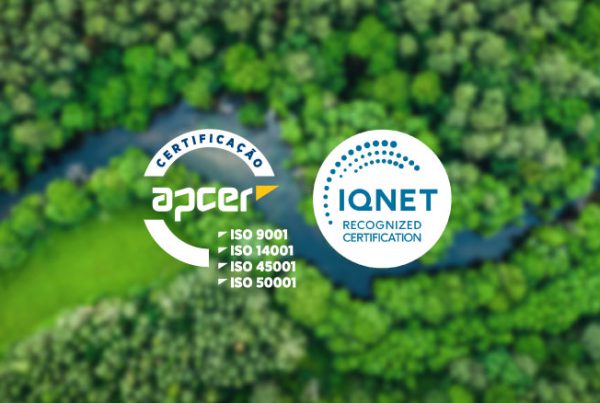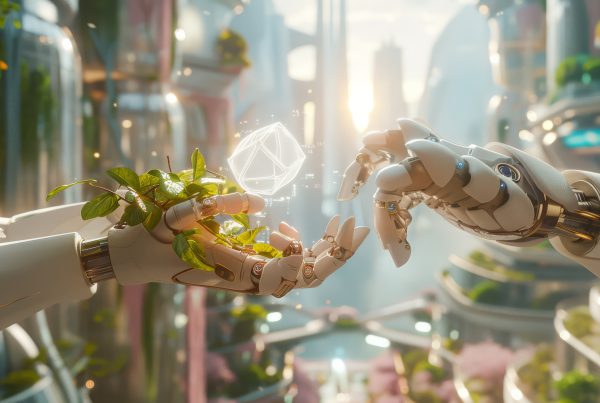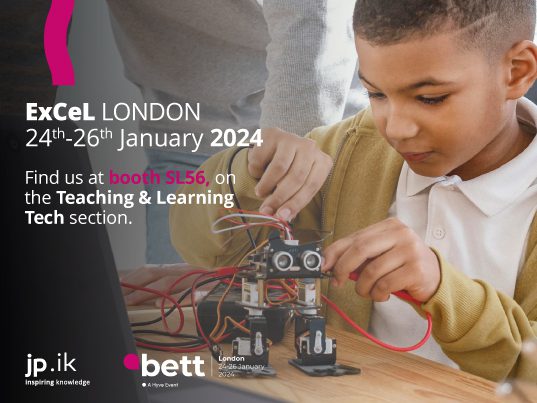In the last two centuries or so, we have lived through four Industrial Revolutions that transformed completely the Industry. Nevertheless, these transformations do not only impact Industry itself, they also impact other spheres of our daily lives, from which we highlight the impact in Education.
This issue of impacting Education, in a broader spectrum, and Education systems, in a more surgical perspective, becomes even more compelling, if our purpose is to bring up valuable members of the workforce and independent problem solvers, educational paradigms need to be rebuilt alongside each new revolution in society.
If we look back at how education has been transformed since the first industrial revolution, we might comprehend the challenges and priorities for students and teachers today. Rooted in earlier life learning models and methodologies, schools were used to teach knowledge.
Learners started their learning journey with no knowledge and the teachers mission was to feed them information in specific subjects. Finally, students were tested to evaluate whether they remembered or not what they were taught.
This learning process fostered a strict framework of study disciplines, education standards and testing. However, bringing the computer was not a game changer behind our education system. Instead, education professionals simply took advantage of the technology and added computers to the learning/ teaching equation, enabling teaching, learning and assessment to be handled by machine.
While long distance learning and a vast amount of information is now accessible thanks to the Internet revolution, the structure of education systems still are quite unchangeable. Learning outcomes are still being tested by the criteria set out in the second industrial revolution. We still understand education as a production line!
In this context the next one-million-dollar question is how do we shift the Education paradigm in order to answer the challenges and priorities of contemporary Education?
First, it is important to revisit the education models and focus on the areas that we need to rethink.
In today’s new world of an overloading of digital transformation and information, learners need to be capacitated instead of taught. Information needs to be accessible and students need to learn how to access it, instead of teachers guiding them into a rigid process. Nowadays, we do finally comprehend students are not alike and do not share the exact same starting point. This means, they can learn and absorb distinct fields of knowledge and need to be oriented to develop their skills instead of taught a set of predefined competences and data.
That said, if we are wondering about Education 4.0, it is relevant to be aligned with Industry 4.0 and set students for the next industrial revolution, which, we believe, will happen in the next generation lifetime.
But, how do we do it? How can we achieve in the real world? A more flexible, dynamic and tailor-made curriculum oriented by teachers who are authentic mentors to their students and treat them as individuals is the starting point for this transformative alignment.
Granting the workforce of tomorrow with the tools to be active lifelong learners might foster an inclusive and pluralistic community, in which every person comprehends and plays to their strengths, in order to build a fair and self-sustaining education paradigm instead of just transferring knowledge.
This alignment between Education and Industry is essential, if we understand youth as the main asset of a nation. In this scenario, education becomes the most powerful tool for social transformation.
Technology has become integrated into virtually every sphere of our lives. The fact is we spend a big trunk of our lives working. Therefore, work is, in fact, is the place where we most directly feel the impact of developing technologies. For example, from collaboration to productivity; from new ways of approaching workspace layout to the increasing capacity to work from virtually anywhere, we believe we are living in a time of experimentation for companies and organizations as trends in the digital transformation. It is undeniable that the fourth industrial revolution is here and is transforming our world. Artificial intelligence, robotics, big data and the internet of things will merge, in order to impact on jobs and in the industry.
As the World Economic Forum predicted, this fourth industrial revolution is defined by a major shift about the future of jobs. This technological breakthrough is rapidly shifting the frontiers between the work task performed by humans and those performed by machines. In this sense, last year, an average of 71 percent of the total task was performed by humans, however it is expected to be reduced to around 60 percent.
In sum, increasingly more jobs are likely to be taken over by machines. However, not all is harsh, because a new set of jobs expected to emerge where Human skills and the Emotional Quotient will be most important and valued. As machine intelligence grows, education is in need of producing better human competence.
Contribution by:
Sandra Jesus
Communication Manager



